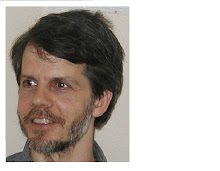The big news this week is that the
Obama administration through the EPA has proposed a 30% cut in greenhouse
gasses from power plants by the year 2030. After we say the obvious, it’s still
in the proposal stage, power production is just one source of greenhouse gasses,
30% is too little and possibly too little to late, what do we say? Pundits
could wax poetic all day about each of these points.
I want to go behind the question of
what the EPA proposal means to how it happened. I’m not talking about the
specifics of the back room deals or who convinced whom that this proposal
should be put forward in its current form. I want to ask is this some
reflection of democracy working, at least almost working?
Let me frame that question more
fully. Many of us voted for Obama first out of hope, and then out of
despair. In voting for a candidate who promised change in the nations
response to global warming, Did we set in motion this action by the Obama
administration? Do the proposals weaknesses reflect the compromises that are necessary
when the populous has divergent opinions? Do the proposals strengths reflect
populist political voices being heard? Or, as it often feels, is
democracy long since done with, and oligarchs and big money are
now running the show.
I would like to think that this
proposal promises to be one of the positive effects of voting for Obama.
It's up there with an imperfect health care law, some early gestures towards
nuclear disarmament, opening up the military to openly gay people(which we're
not sure is such a good thing since the world is probably better off when fewer
people are allowed to fight), and the bailing out GM and Chrysler
(which was actually important because it showed that the government
could "nationalize" a major portion of the auto industry) and
a possibly somewhat quicker sort of withdrawal of most troops from
Iraq. Without a doubt I do believe that Obama's politics are far better than
either Romney or McCain. I believe this particularly in the area of global
climate change politics.
A more cynical view of things sees
this all as orchestrated by political puppeteers representing the interests of
the super rich. In this view these puppeteers, often called lobbyists, some
times called advisers, even known as trusted political allies, all work
together to create a picture in which the only logical choice is the one that
the power élite want. Obama the liberal compromises to the right , a
conservative president would compromise to the left, but the results are
fairly similar.
Does a 30% cut in carbon emissions
from power plants represent what the science of climate change suggests is
necessary, where the cost and benefit lines cross on the graph, or is it some
compromise between the interests of the coal industry and the interests of the
insurance industry looking a extreme weather and rising tides.
While both the “democracy in action”
and the “power overlords” scenarios are both a bit cartoon, reality likely has
some amount of each. We can squabble
over how much of each, but in the meantime it’s worth acting like we have some
democratic power. If you care about the planet,
who doesn’t? I’d like to encourage you
to make an effort to comment to the EPA on this proposal. We have until the end
of September to do so. I think comments should emphasize that 30% is not
enough. There are also 4 public hearings
around the country worth attending in the last week of July
If climate change activists don’t comment
we may get a 28% cut in carbon or less. I’d be surprised if it went up to 35%. Wherever those numbers end up two things are
clear: it will be better than no numbers, and it won’t be enough. Even still cutting
emissions on electric power generation is only part of the picture. The tar
sands pipelines could reverse any gains this proposal promises. Other pieces of
the picture include: addressing industrial
contributions to greenhouse gasses; taming
the excesses of consumer society; creating
energy competent buildings, and reinventing agriculture away from agribusiness.
There are political arenas where there is more to do. Promoting tough international treaties, State,
county and city level legislation, Local
initiatives(like the cooperative investments known as community solar) , Grass
roots organizing and direct action (like blockades of the XL and Embridge
pipelines) are all part of the solution.
If 30 % cut in greenhouse emissions
for electricity generation is a reflection of the percent of corporate
interests for and against carbon control, and if this proposal stimulates
further growth in the renewable energy sector and in any way inhibits the
carbon sector, we can hope that the corporate world will reflect this shift in
its future influence on political decisions, offering proposals that are
increasingly effective. Of course I’d rather have it that we could just trust
democracy to direct our political leaders to fully address the problem of human
driven climate change, I’m just not sure that that is the system we have.
